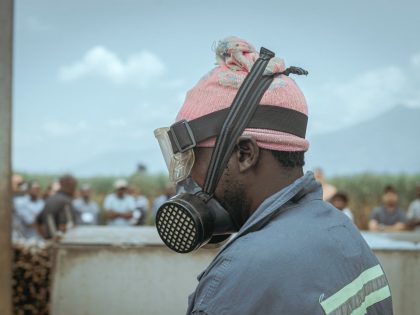
Death by betrayal
Tanzania’s workers are at the highest risk for COVID-19 infections and deaths. Why are trade unions not taking action?

Tanzania’s workers are at the highest risk for COVID-19 infections and deaths. Why are trade unions not taking action?

Ideas for how to pressure Uganda's "M-Pigs" to become elected representatives who actually serve in the public interest.

The 60s, 70s, and 80s are often described as the Golden Age of Indian cinema and Nairobi, Mombasa and Kisumu had a large number of cinemas devoted to showing films made in Bombay.

Fatma Alloo (of the Tanzania Media Women's Association) on how women used the media and cultural spaces to organize and challenge gender norms.

How Kwame Nkrumah and Julius Nyerere’s approaches to gender politics, help reshape feminist visions for reclaiming a developmental state.

One corporation's tax tussle with Tanzania holds many lessons for African countries that continue to struggle with the inequitable share of proceeds from their extractive sectors.

Nkrumah, Nyerere and Senghor were acutely aware of the need to displace the epistemic conditions of colonization in order to transcend it.

A new biography of Tanzania's first president, Julius Nyerere, reveals a complicated legacy.

This week on AIAC: Wangui Kimari and Benjamin Fogel on the politics of anti-corruption, and then the particular case of Tanzania with Sabatho Nyamsenda and Elisa Greco. Subscribe to our Patreon for the podcast archive.

Tanzanian universities are beginning to tackle “sextortion.” Will new policies and attention to sexual harassment on campuses make a difference?

Chambi Chachage’s tribute to Annar Cassam, assistant to late President Julius Nyerere of Tanzania, and a key figure in anti-colonial movements.

The death of a University of Dar es Salaam student 30 years ago and sexual harassment in Tanzanian higher education now.

The misguided rhetoric of Tanzanian President John Magufuli guides the country's response to COVID-19.

Sugar has become the new gold in Tanzania as prices for the commodity soar and stocks vanish.

NGOs have been notably absent in the fight against COVID-19, despite claims they exist solely to ensure accountability and transparency by government.

How can a fragmented and precarious working class unite against exploitative labor relations and, in the process, transform them?

With their government obsessed more with control of information than COVID-19 itself, Tanzanians are bracing for the worst.

In a ruling party-dominated Tanzania, opposition parties are flawed but remain critically important.

The Tanzania government's brand of heavy-handed state intervention risks fueling skepticism about the role of the state in development.

Ozier Muhammad captures, for black American audiences, the expressive possibilities of Africa's liberation struggles.